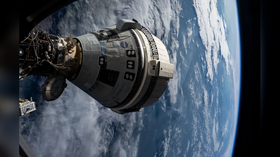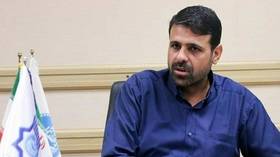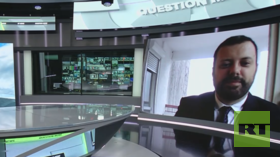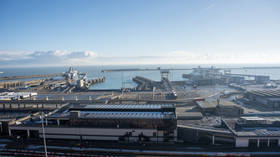Russia delivers US astronaut to space station (VIDEOS)
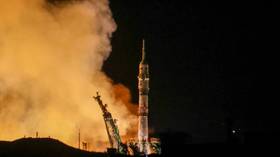
Russia's Soyuz MS-26 spacecraft has successfully delivered a crew of two Roscosmos cosmonauts and one NASA astronaut to the International Space Station (ISS), Russia’s national spaceflight corporation has announced.
A Russian Soyuz-2.1a rocket blasted off from the Baikonur Cosmodrome in Kazakhstan at 7:23pm Moscow time. Just over three hours later, it docked with the ISS.
“Today at 22:32 Moscow time, the Soyuz MS-26 manned spacecraft docked with the Rassvet module in automatic mode,” Roscosmos wrote on its Telegram channel on Wednesday.
The Soyuz MS-26 mission commander, Aleksey Ovchinin, as well as flight engineers Ivan Vagner and Don Pettit of NASA, were greeted by the ISS crew upon disembarking.
The trio is part of the station’s Expedition 72 crew. They joined the Expedition 71 crew currently aboard the ISS – Roscosmos’ Oleg Kononenko, Nikolay Chub, and Aleksandr Grebenkin, as well as NASA’s Matthew Dominick, Michael Barratt, Jeanette Epps, Tracy Caldwell-Dyson, Suni Williams, and Butch Wilmore.
Williams and Wilmore were originally expected back on Earth in June, but their Boeing Starliner spacecraft encountered technical issues, leaving them stranded in space indefinitely. The Starliner returned uncrewed, landing in New Mexico last week, according to NASA.
The Soyuz MS-26 is the tenth Russian launch vehicle sent into space this year. The 72nd expedition is expected to receive two cargo spacecraft – Progress MS-29 and Progress MS-30 – during its planned 202 days in orbit, according to Roscosmos.
